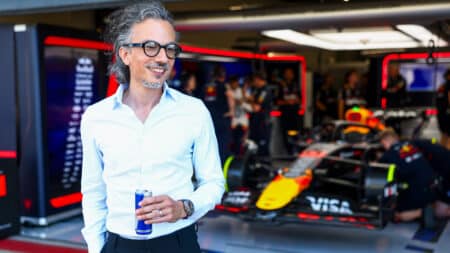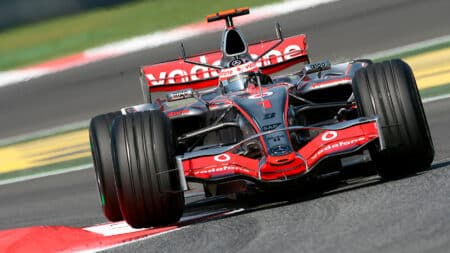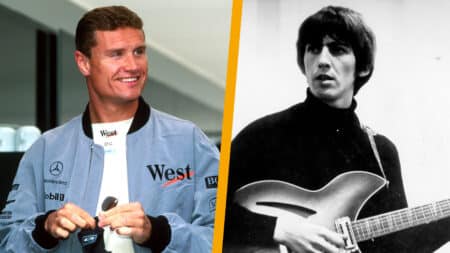
MPH: To the man trying to fill Christian Horner's shoes: good luck!
Laurent Mekies arrives as Red Bull F1 team principal with a series of immediate challenges to solve and long-term issues to tackle. He'll either sink or swim, says Mark Hughes
The great John Le Carre (yes, I am biased, a huge fan of his novels) observed that a desk is a dangerous place from which to watch the world. He is, unsurprisingly, so right.
In these days of clever electronic communications, and so many sources of information, journalists spend a lot of time at their desks. Or work stations as they are sometimes known. In days gone by we spent a lot more time on the road, meeting people and talking to them. Should you choose to do so, you may now spend the duration of a race weekend in the Media Centre, where you are surrounded by screens showing live pictures and timing.

I mention all this because, as each year passes, a sporting event is increasingly the focus of media attention on a global scale hitherto unimaginable. This is one of many reasons why it is increasingly hard for us to actually talk to people for any sensible length of time. And there is a palpable reluctance to bite the hand that is feeding the information, or spin, whichever you prefer.
Formula 1, now a global television business, employs a great many people whose task it is to feed us what they would like us to print, or broadcast. A parallel task is to prevent us from printing, or broadcasting, what they do not want us to know. As in other walks of life, notably politics, it is therefore important to try and separate the facts from the spin. Time was when spin meant a rotating racing car. Not any more.
Journalists with the time, or budget, are therefore keen to seek access through a back door rather than join the queue at the front door. This is marginally easier during testing, of which there is precious little as compared with recent years. Financial restrictions have, as with so much else, seen to that. This goes some way to explaining why so much information now emanates from a test such as we saw last week.

Mugello is a popular destination for several reasons. The circuit is just superb, a proper old-fashioned racing track much appreciated by drivers. Mark Webber, typically, observed that 10 laps of Mugello was better than 100 laps of Abu Dhabi in terms of satisfaction. Hear hear to that. Sebastian Vettel said it was unfortunate that the track is not on the F1 calendar. Ditto. It is close to Florence, a city that is always a pleasure to visit, and it’s usually warm and sunny. This year it rained for some of the time but that was not the only surprise of this three-day test ahead of the European season.
Neither Lewis Hamilton nor Jenson Button were there. That seemed baffling to me, inexplicable even. Fastest overall was Grosjean in the Lotus. Is the car really that good, or is Grosjean the new discovery? Toro Rosso impressed, Ricciardo one of six to finish with a second of fastest time. McLaren was off the pace. Just working through a scheduled programme, we assume.
Mugello is owned by Scuderia Ferrari who introduced heavily-revised rear bodywork and exhaust outlets on the F2012, an overdue tweak that helped Alonso to third overall behind Grosjean and Vettel. There will be more to come.
Ahead of what looks like being such a close season we learnt very little. The teams, of course, learnt a lot although their daily bulletins to the media contained precious little information. Can you keep a secret? If you work at the sharp end of F1, you can.

On Sunday in Barcelona we may learn a lot more. Or not. Ferrari will be closer. Red Bull is back. Lotus is a dark horse. McLaren will surely have sorted out its pit stops. Mercedes may not like Catalunya much. Now we’re into the meat of the season, races every couple of weeks, relentless development in between. Mugello may not have answered many questions but one thing is for sure, it is very close at the front.

Laurent Mekies arrives as Red Bull F1 team principal with a series of immediate challenges to solve and long-term issues to tackle. He'll either sink or swim, says Mark Hughes

Former McLaren F1 team-mates Mika Häkkinen and David Coulthard are set to renew old rivalries in a new Evening with... tour – they told James Elson all about it

In Formula 1, driver contracts may look iron-clad on paper, but history shows that some of its biggest stars have made dramatic early exits

Former McLaren F1 ace told James Elson about his private audience with The Beatles' George Harrison, who played an unreleased grand prix-themed song